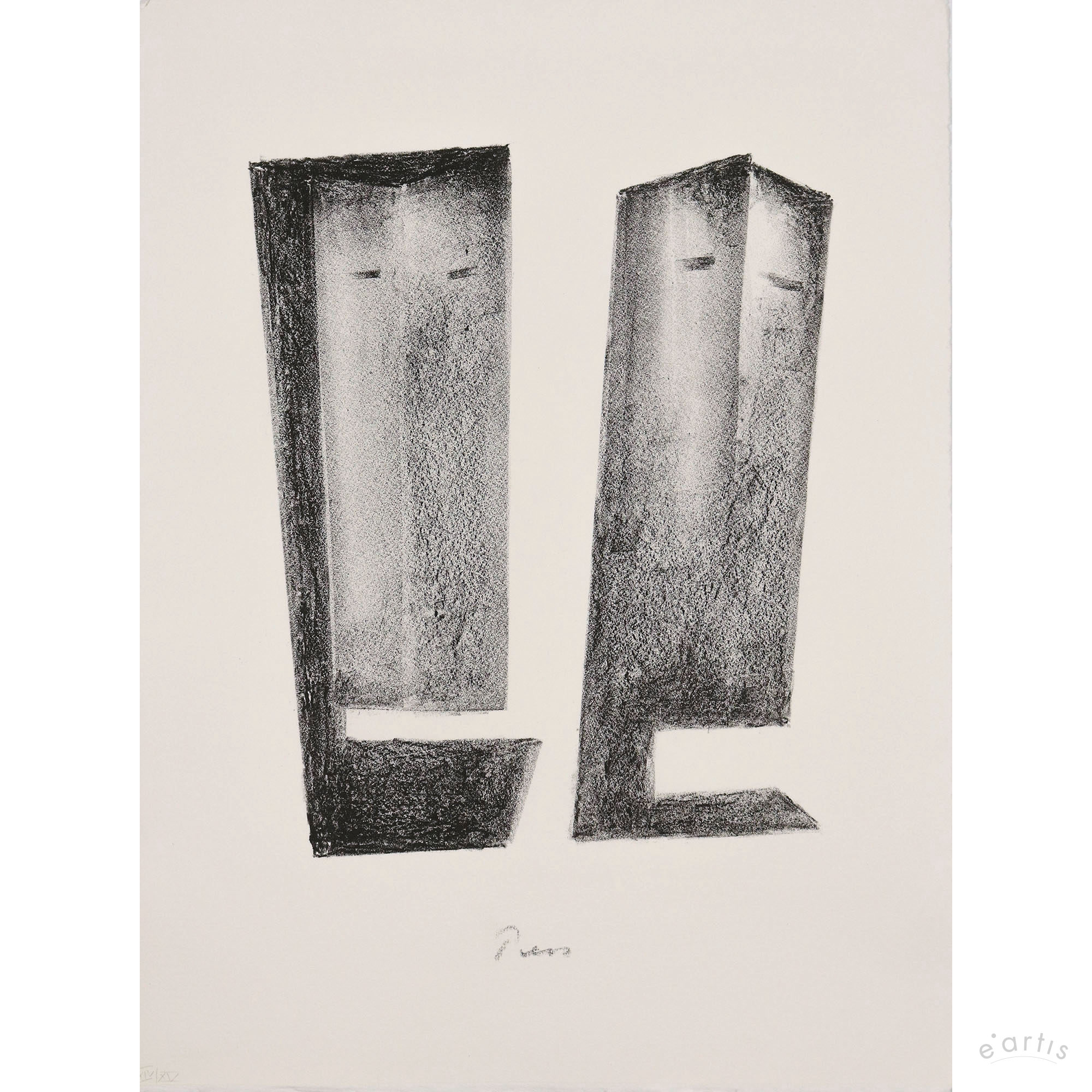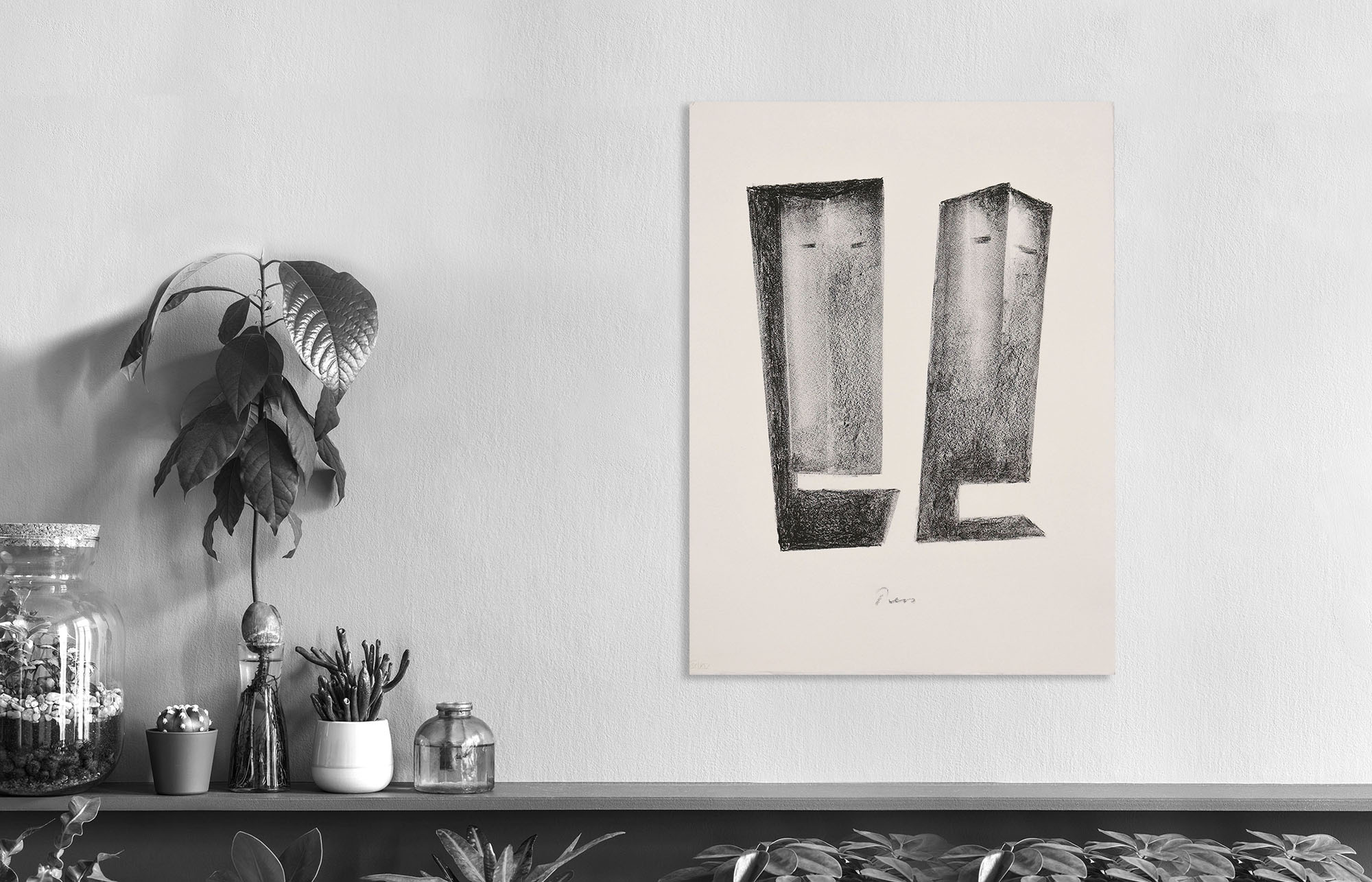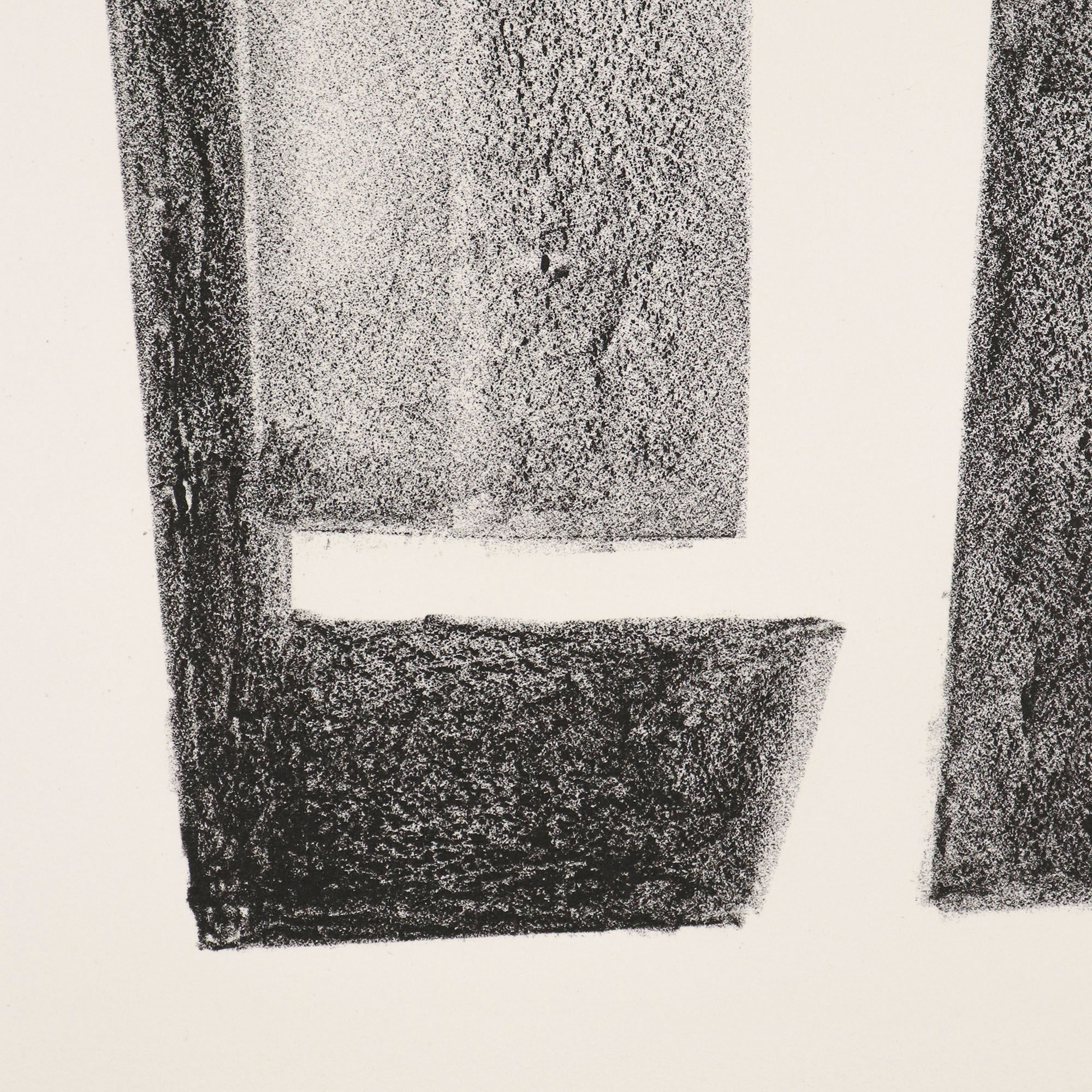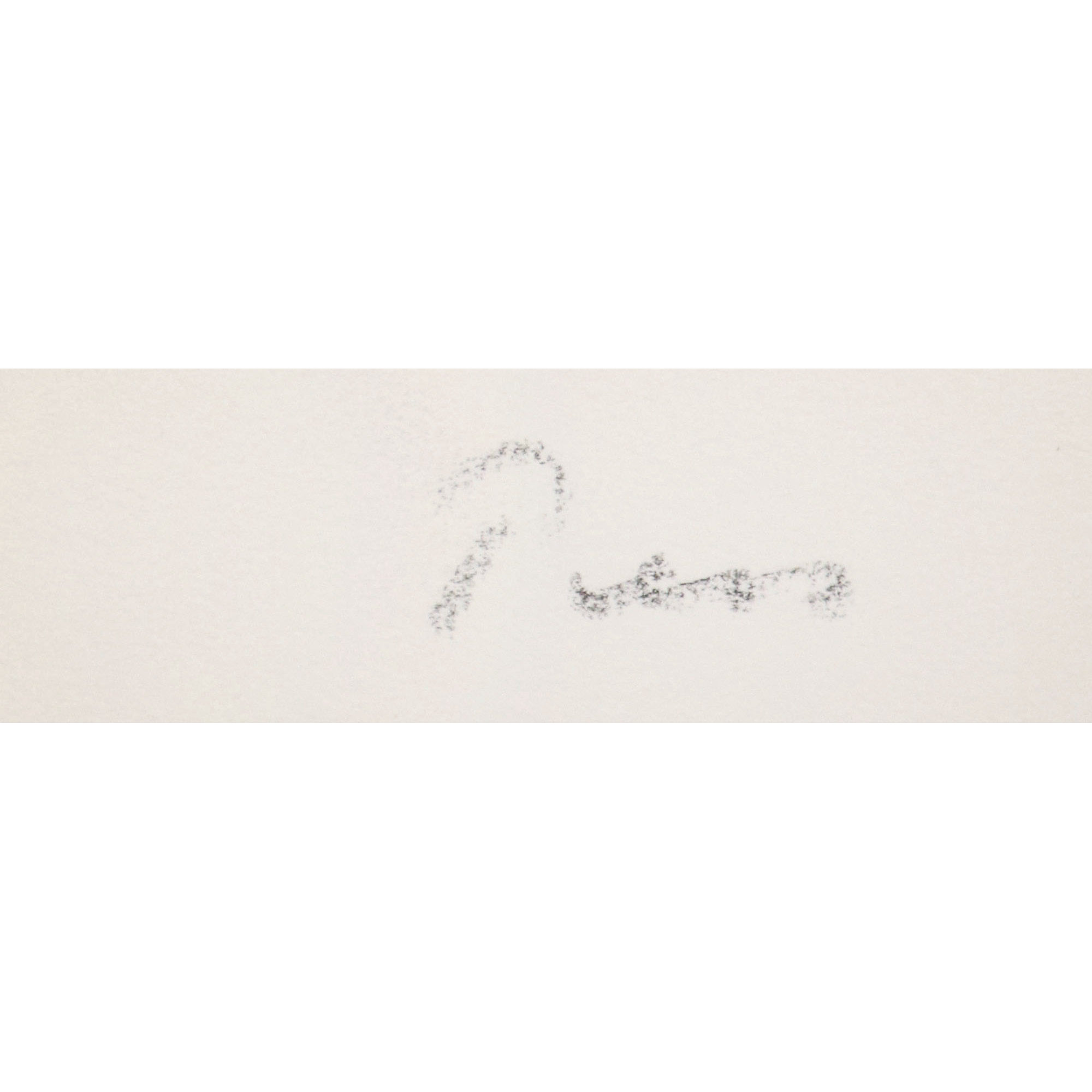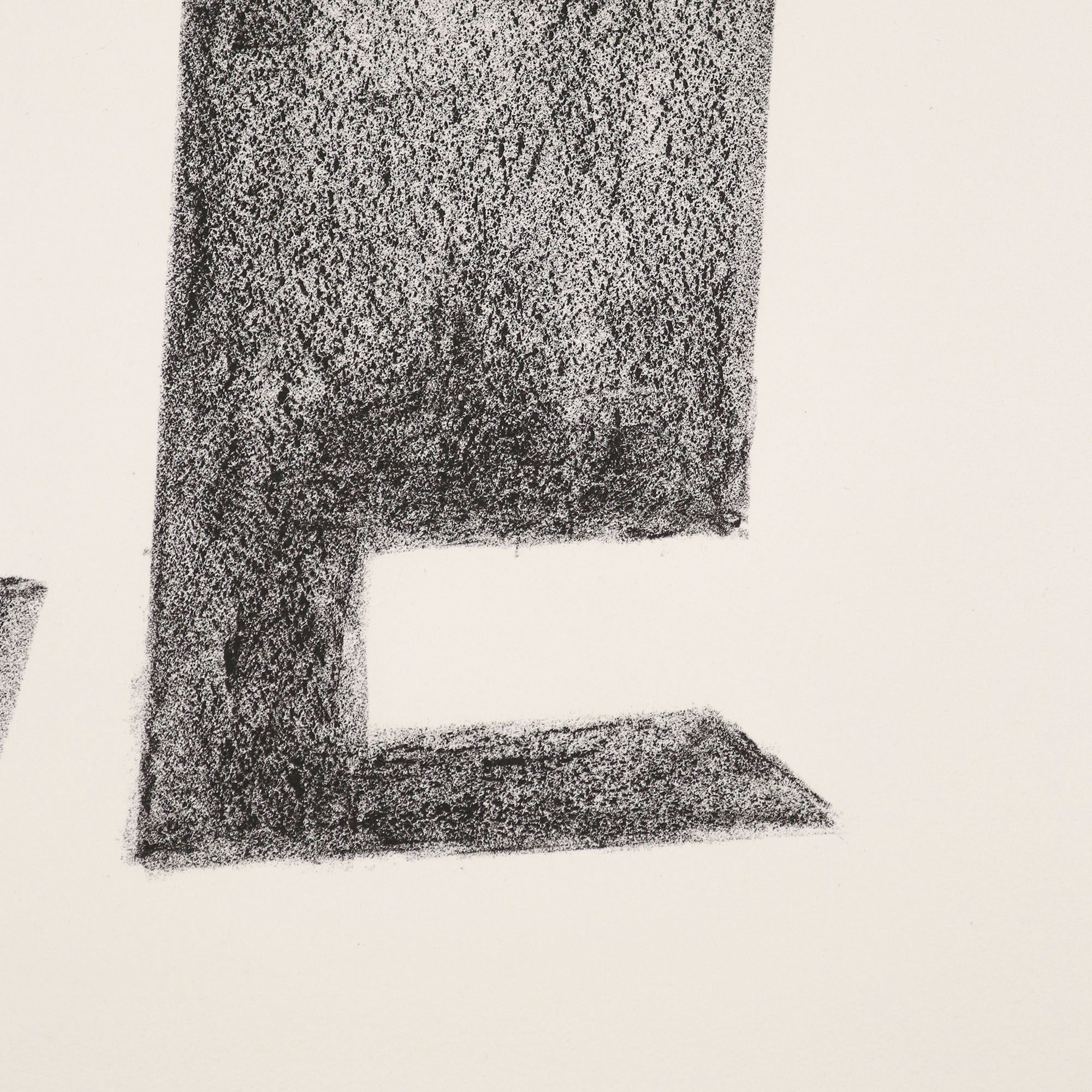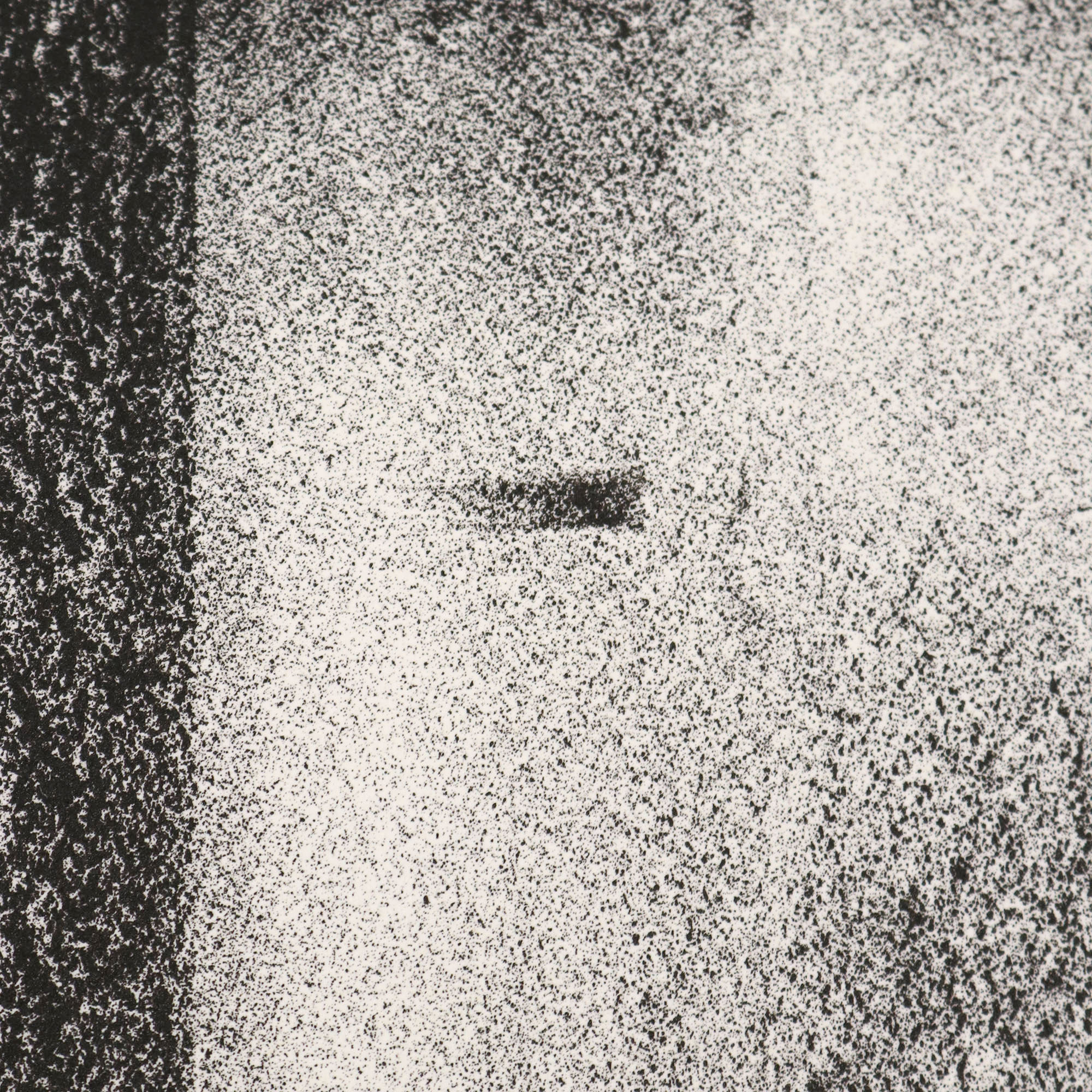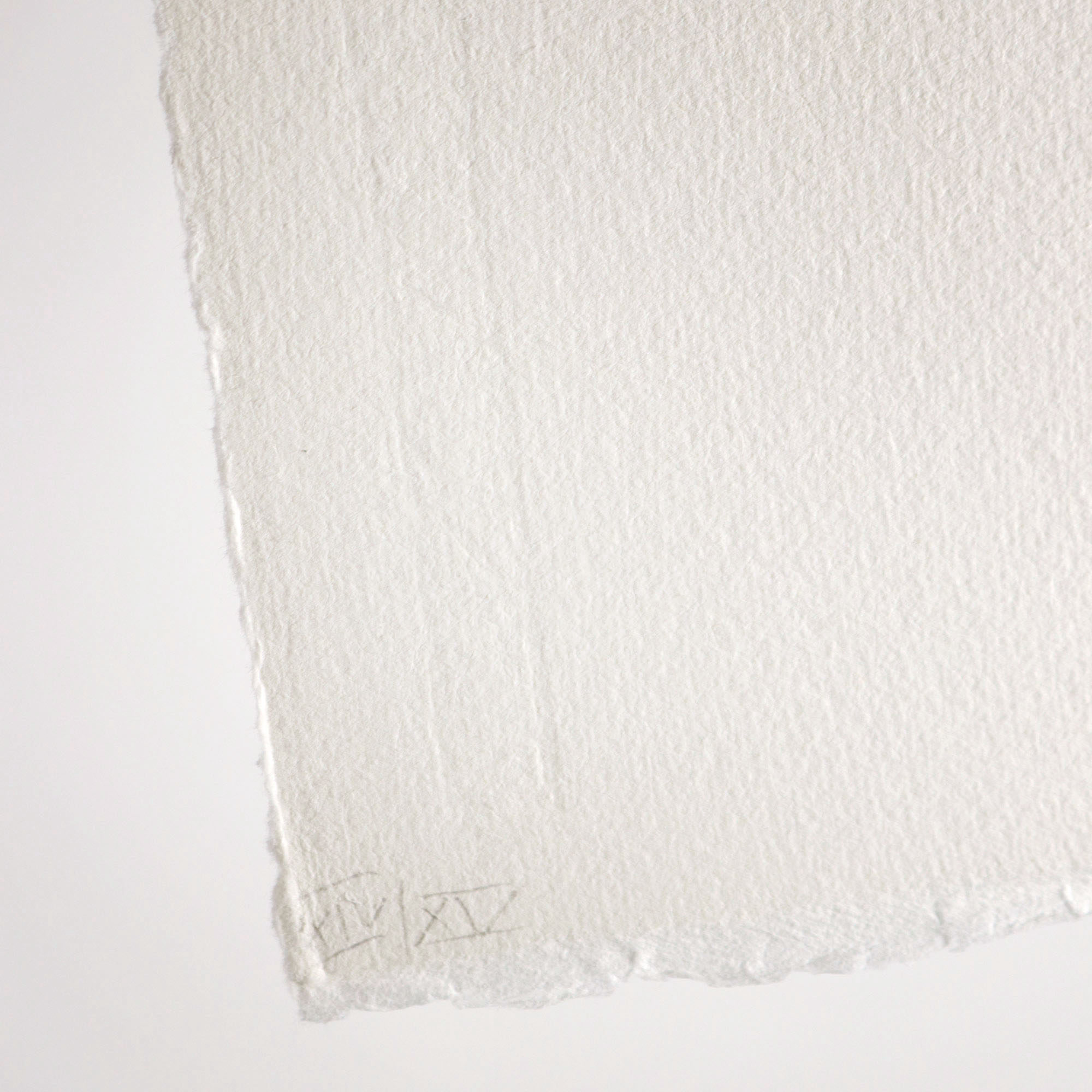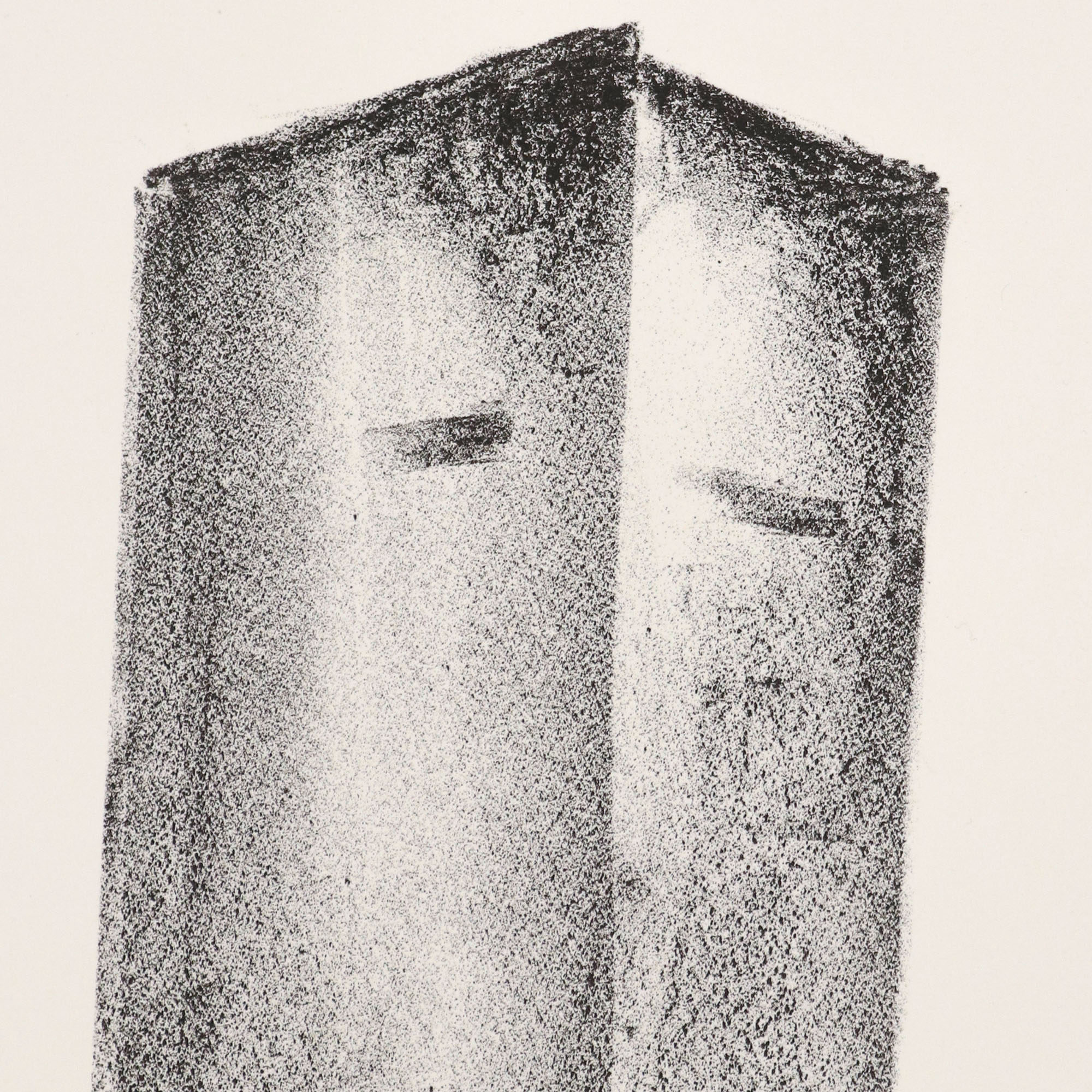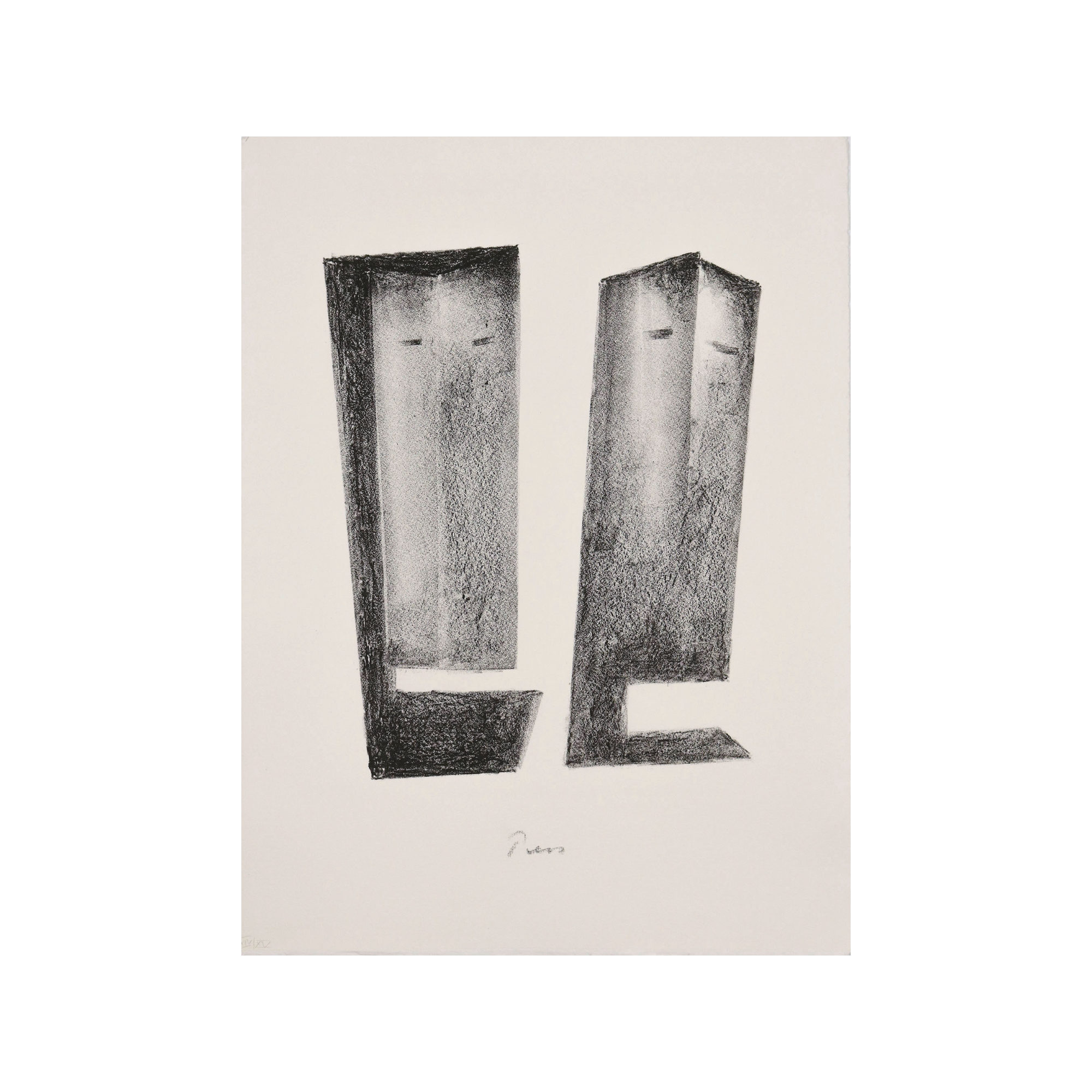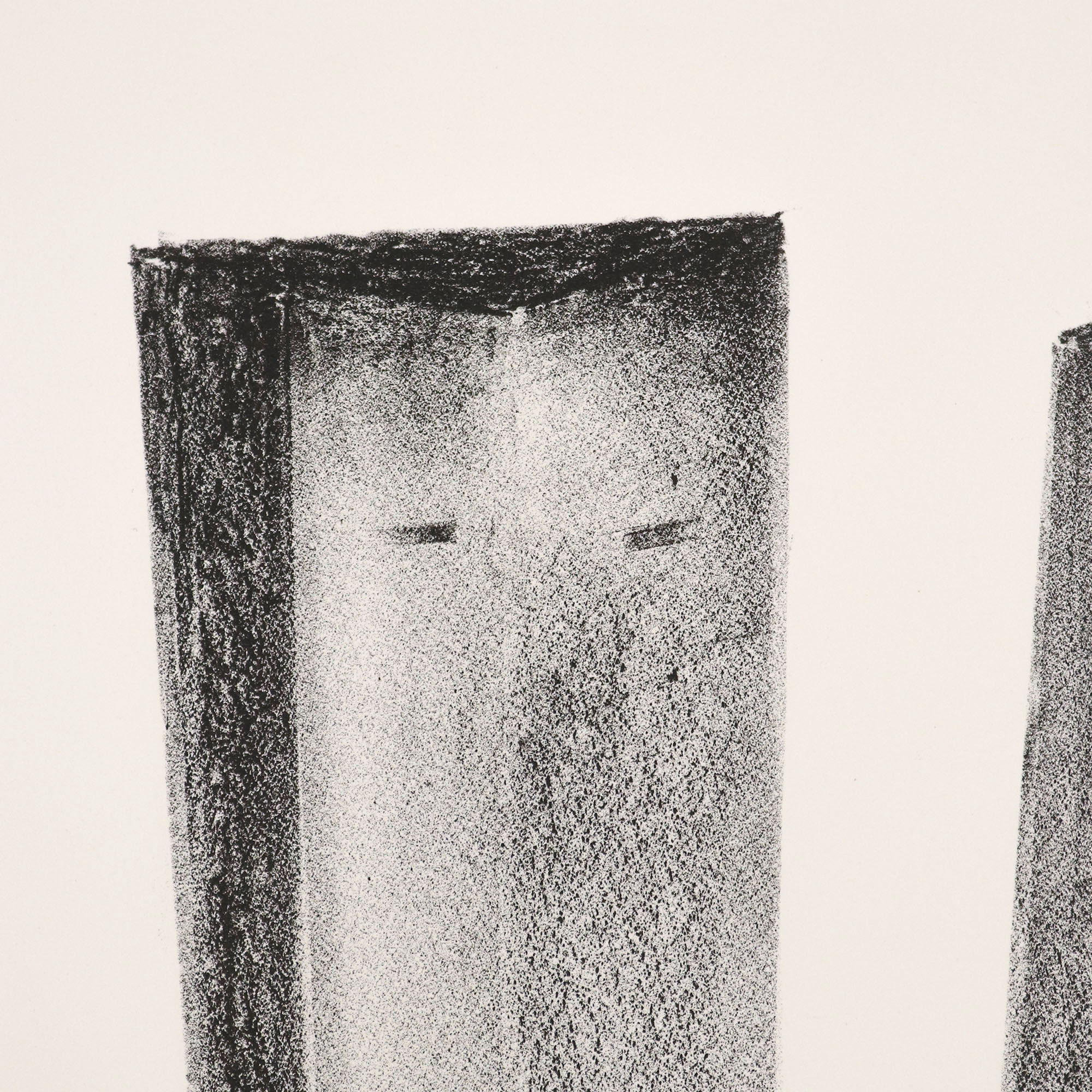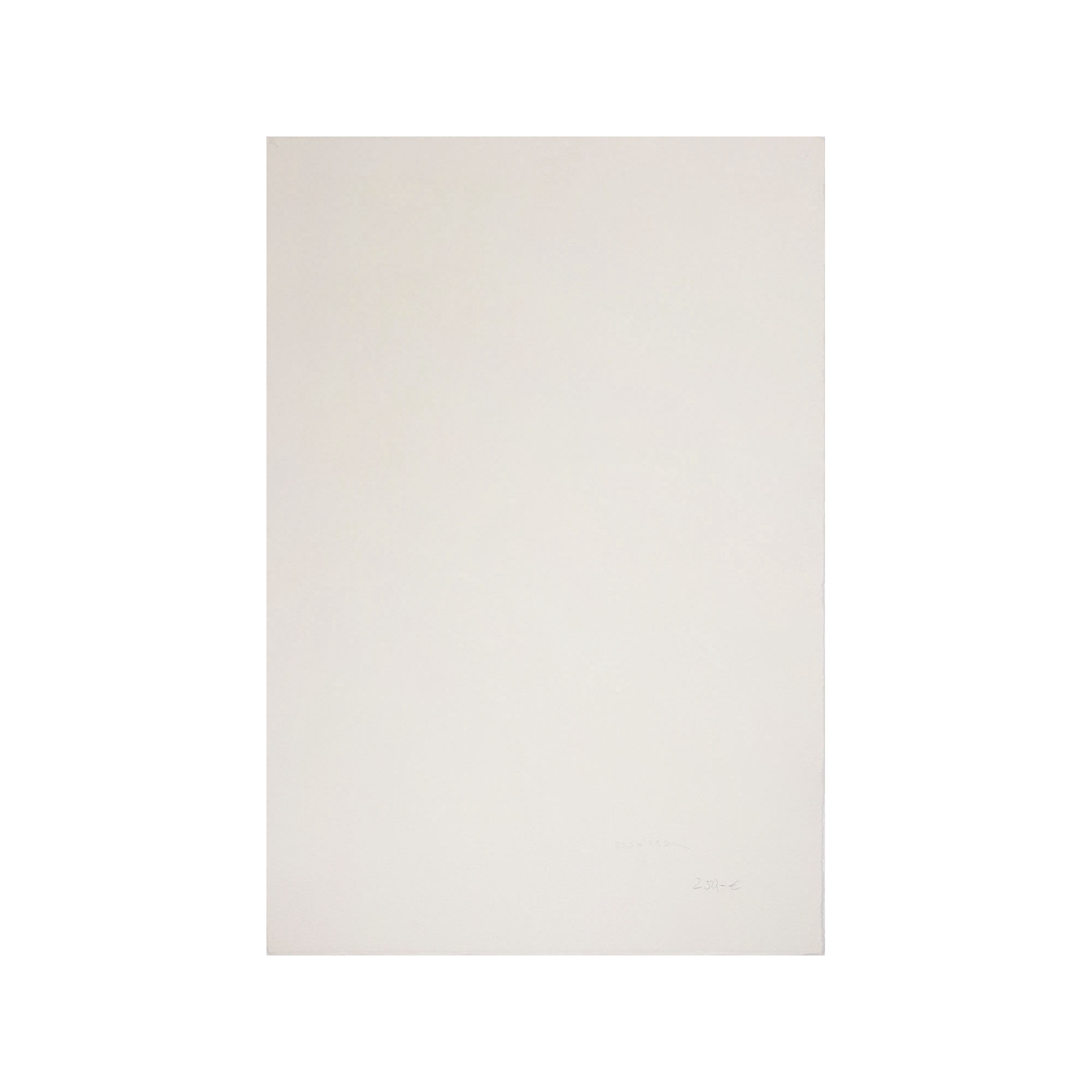| Category | |
|---|---|
| artist | Press, Friedrich |
| year | 1989 |
| Title | Zwei Jünger (Zwei Köpfe) |
| size 1 |
Motif
34,2 x 28,6 cm
Sheet: 53,7 x 39,7 cm |
| material | Lithograph on Hahnemühle laid paper |
| edition | XV copies (total edition 100 + XV), here no. XIV |
| signature | Numbered lower left corner: XIV/XVSigned lower centre: Press |
| publication | - |
| Provenance | Private Collection Germany |
Friedrich Press Zwei Jünger (Zwei Köpfe) (1989)
- Edition of the Galerie Oben in Karl-Marx-Stadt
- Two abstracted heads - disciples following Jesus Christ
- Important sculptor from Münster - Later in Dresden, GDR
- Master of sacred art
€900.00*
- The artwork is available immediately and can be viewed at any time in our gallery.
- Ready for shipment within 2 days.
- Free shipping within Germany.
Informations
condition
|
The Print is in a very good condition |
artist
|
Friedrich Press was born in Ascheberg, Westphalia, in 1904 and died in Dresden in 1990. Following his training as a wood and stone sculptor in Münster, Press attended the School of Arts and Crafts in Dortmund from 1924 to 1926. He then studied at the Charlottenburg School of Arts and Crafts under Hans Perathoner and at the Dresden Academy of Art under Georg Wrba, among others. Press lived as a freelance artist near his hometown until 1935. During this time, he created his ‘Christuskopf’, which attracted a great deal of attention at exhibitions in Münster and Berlin in 1932. From 1935, he lived and worked in Dresden, marrying the painter and textile designer Elfriede Kiefer in 1935. In 1946, he returned from captivity as a prisoner of war to a destroyed Dresden and focussed his work on sacred art and church interior design. |
e.artis safety
Art trade is a matter of trust.
Features and remarks
"In seinen Werken, den Skulpturen wie den Zeichnungen, lenkte Friedrich Press den Blick durch Reduktion auf das Wesentliche. Die überzeugenden, konzentrierten Arbeiten sind in ihrer radikalen Beschränkung und Stilisierung nicht mehr Abbild, sondern Zeichen der Aussagen des Christentums und der menschlichen Affekte und Stimmungen.“
Museumsschriften der Diozöse Würzburg.

